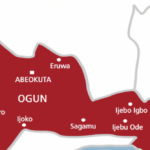
Alhaji Ahmed Rufai Mohammed, an investment professional with over 30 years’ experience in project development and portfolio management is the 15th president of the Institute of Directors Nigeria. He joined IoD in 2005 in this interview with Daily Trust, he spoke on various issues such as the role of the private sector in national development and his plans for the institute.
How can Nigeria’s economy catch up with other countries? What’s the missing link?
The private sector in many economies has been responsible for the growth of those economies. The only way to make Nigeria’s private sector be like its counterparts in other nations is to involve the government because the government controls the economy largely today. There must be a transfer of government’s activity to the private sector.
Today, many countries in the world have railways run privately. They involved the private sector. One of the biggest airports in UK is run by a Nigerian who lives there. He runs it 50/50 with the British government. That is why other countries keep expanding and growing. They ensure there is surplus in whatever they do. The only way to grow is to be private sector-led as the public sector-led has not been fruitful so far.
How can that be achieved?
The government should create a conducive environment to set up business and should formulate friendly policies to attract better investment.
No one can plan an economy except with knowledge and knowledge doesn’t exist only in the government alone. It exists largely in the private sector; within the executives who have trained and will continuously train themselves. They have worked hard to drive the economy of the enterprise they are managing to become productive and also ensure they make money out of their companies. They are the people who know how to invest a naira, and make N2 out of it. Government should make the right policies and police the environment.
A partnership between the private sector and government through PPP (public private partnership) will go a long way in making things better. For instance, the Murtala Muhammed International Airport 2 is one of such. From what we see on the outside, they seem to have shown some success. We can see improvements because it’s private sector-led. It’s now doing well.
Corporate governance has been actualized in many ways, even in the private sector. In the past, the chief executive officers of companies didn’t want to leave their offices, yet they could not continue to be there due to the law of diminishing returns. He or she cannot perform optimally as before and at that level, he or she will have to give up.
When was IoD established and how many members do you have?
The Institute of Directors has been in existence for about 34 years. It started as an affiliate of the Institute of Directors in the UK which was founded in London in 1903 and granted a Royal Charter by King Edward VII in 1906.
IoD exists in many countries and offers members a network of over 85,000 members worldwide.
The institute has 4,000 members in Nigeria with the aim of improving professionalism, directorship competence, integrity and enterprise
IoD in the UK has been chartered for a while, after 34 years, why is IoD Nigeria yet to be chartered?
The Governing Council of IoD never deemed it fit for their members to be chartered. To be a director, you don’t have to be chartered. We are working on how our members will be chartered this year. Being chartered will give our members a competitive edge and an opportunity to interact more with people in other countries.
What has IoD Nigeria achieved in the last 34 years?
Our achievements are reflected in our objectives, some of which are imbibing corporate governance, advocacy and capacity building of directors. We have been able to train as well as build the capacity of the directors (and would-be directors) of many companies and some of them are running ably today due to the input of IoD.
Being a director or owning a company does not mean you should not improve yourself or you can take things for granted. Many companies collapsed within short periods because they didn’t understand what governance is. Being a director does not also mean you just have to go through the papers, you have to study everything.
Every company is a mini government with its own board, owners and the stakeholders. The stakeholders include those who own the shares directly, the workers, management, suppliers and those who buy the product as well as the government because they pay taxes. Directors must be able to understand how to govern a company.
There is a difference between governance and management. Board members are supposed to understand they are different from the members of management. Directors must govern with ethics, transparency, integrity, accountability and understand the conflict of interest, succession plans, risk evaluation and so much more.
IoD has been in the forefront of providing corporate governance knowledge in both private and public sectors. We have trained many permanent secretaries and directors.
What is the relationship between IoD and the government?
We are a private, not-for-profit enterprise. IoD has no relationship with any government, both at the state and federal levels except on capacity building. We help them build on the capacity of the public/civil servants. To achieve so much as a permanent secretary or director, such person needs to be trained. So, we have been training some people in the civil service, including those of the Lagos State government. We are moving to other states, to train and build their capacity.
Lack of training is one of the major challenges we have in Nigeria. Understanding, appreciating and comprehending how to govern is a major challenge. And as a public servant, you must always show integrity and ethics. Code of ethics is part of corporate governance that every organisation must have.
Over the years, aside having regular dialogue with the governments, we also suggest policies to them and also engage them by inviting them to some of our programmes to speak on pertinent issues affecting the economy and steps taken to ameliorate the challenges. We also provide advisory services.
In terms of advocacy, what is your relationship with government?
Interfacing of directors with government through some programmes like annual directors conference, advocacy programmes, roundtable discussions and government meets business are some of what we continuously do. We invite ministers into joint meetings with the private sector. We also discuss how quality should be driven to make the public sector grow. We advocate and train. We invite our members and other notable personalities from Nigeria and abroad and we discuss governance issues too.
What are your plans for IoD during your two-year tenure?
My plan is to transform the organisation into a better one. We have had many presidents who have done very well. I will draw from their experiences and the continuous knowledge of members who have been with us for some time.
My goal is to build an institution and not myself as an individual. I want to see the institute grow to an extent that every director in the country will want to be a member of IoD.
We are really working presently on how to add value to our members in terms of training, networking and sharing experience.
My immediate plans are; getting IoD chartered, organisation of young directors forum, establishment of international training centre, and making the institute the employment of choice for job seekers.
What are your plans to make other branches of IoD function optimally?
Our branches in Abeokuta, Abuja and Port Harcourt have now become zonal offices. Over time, there will be more branches, though that will be based on the resources available.
We employ people, train them and station them in our various zonal offices. We have a database of all our members in the branches. Seminars, trainings and interactions with government officials are done not only in Lagos but also in those places. In terms of size, Lagos has the highest number of members. Everything starts small, then grow, and then become big.
What challenges does the institute have?
Every organisation has challenges, it now depends on how such challenges are turned into opportunities. One of our major challenges is how to make IoD members chartered. We look forward to overcoming this challenge in 2018. Other challenges continue to be there.
What are the criteria for becoming a member?
Our members cut across directors and business leaders from the public and private sectors and across diversity of enterprises in commerce, industry, services, professions, bureaucracy, etc.
There are three categories of membership – associate, members and fellows. The associate members are basically directors, chairman of sole businesses who have been in business for up to a year. Chairman, chief executive officer, executive director, directors, and those reporting to the board of an organisation and have served for up to two to three years, are eligible to become members of IoD.




